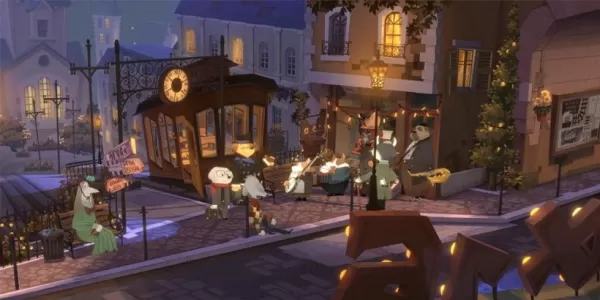Balatro developer, Local Thunk, has provided a fascinating insight into the game's development journey through a detailed blog post. In it, he reveals a unique approach to game creation, notably his decision to avoid playing other roguelike games during Balatro's development—except for one notable exception.
Starting in December 2021, Local Thunk consciously refrained from engaging with roguelike games. He explains this choice was driven by his passion for game development as a hobby, rather than a professional pursuit. "I want to be crystal clear here and say that this was not because I thought it would result in a better game, this was because making games is my hobby, releasing them and making money from them is not, so naively exploring roguelike design (and especially deckbuilder design, since I had never played one before) was part of the fun for me. I wanted to make mistakes, I wanted to reinvent the wheel, I didn’t want to borrow tried-and-true designs from existing games. That likely would have resulted in a more tight game but it would have defeated the purpose of what I love about making games," he stated.
However, about a year and a half later, Local Thunk broke his rule once by downloading and playing Slay the Spire. His reaction was immediate and strong: "Holy shit," he wrote, "now **that** is a game." Initially, his intention was to study Slay the Spire's controller implementation due to challenges he faced with his own game, but he found himself deeply engaged with the game. He expressed relief at not having played it earlier, as it might have influenced his design choices either intentionally or subconsciously.
Local Thunk's post also sheds light on various aspects of Balatro's development. Interestingly, the game's working folder was initially named "CardGame" and remained unchanged throughout development. The game was also known internally as "Joker Poker" for much of its development cycle.
He shared insights into several features that were considered but ultimately scrapped, including:
- A version where upgrades could only be made to cards in the player's deck, similar to the system in Super Auto Pets.
- A separate currency for rerolls.
- A 'golden seal' feature for playing cards, which would return the card to the player's hand after being played if all blinds were skipped.
The blog also recounts how Balatro ended up with 150 Jokers, a result of a miscommunication with the game's publisher, Playstack. Local Thunk initially mentioned 120 Jokers, but a subsequent conversation led to the number being interpreted as 150, which he then decided was a better fit and added 30 more Jokers accordingly.
Finally, Local Thunk shared the amusing origin story behind his developer alias, "Local Thunk." It stemmed from a light-hearted moment with his partner, who was learning to code in R. When asked about naming variables, Local Thunk provided a detailed explanation, only for his partner to humorously suggest "thunk." Given that variables in Lua are sometimes declared with the "local" keyword, "local thunk" became a memorable phrase and eventually his chosen online developer handle.
For those interested in the full story and more insights into Balatro's development, Local Thunk's blog is a must-read. At IGN, Balatro has been highly praised, receiving a 9/10 and described as "A deck-builder of endlessly satisfying proportions, it's the sort of fun that threatens to derail whole weekend plans as you stay awake far too late staring into the eyes of a jester tempting you in for just one more run."







![Chubby Story [v1.4.2] (Localizations)](https://images.737c.com/uploads/85/1719638042667f981a5e9f8.jpg)

